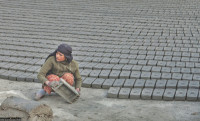Opinion
Better tomorrow
Discrimination against women is a result of their low socio-economic status
Pratima Bhattarai
Changing times
No doubt, the situation has changed, compared to the time of our mothers. There is equal participation of women in education, at least at the primary level. But school education is not enough to radically change social attitudes towards women. The crux of the matter is cultural traditions, social norms and values. Both males and females form their mentality according to what they have learned.
In my family, there is less gender-based discrimination as we are well educated. We are given equal opportunities in education and in the field of outer activities beyond the threshold of our home. But I live in a society where every families often teach their young daughters so as to get a well educated and well-to-do husband. These parents are turning their daughters into helpless creatures who will be completely dependent on others.
Women themselves
The second important thing is that women themselves are responsible for the condition they are in. Why can't we realise that we are able to do any kind of work that men can do? There is a reason for that. A girl can't help but feel inferior when everything around her tells her that she is worthless compared to a boy. Socially and economically, men are always considered superior to women. They are the so-called heads of families and breadwinners and caretakers. This is the major reason behind the dismal participation of women in income generation.
The famous feminist Simone de Beauvoir wrote, "Women experience certain phenomena such as pregnancy, lactation, and menstruation that are foreign to men's experience and thus contribute to a marked difference in women's situation. However, these physiological occurrences in no way directly cause woman to be man's subordinate." Obviously, biological differences between men and women should not be a licence for men to dominate women.
The other
Our society treats women as the 'other' in relation to men. Their decision making power is almost nil. Women are chastised, maltreated and abused even for petty mistakes or for mistakes they have not committed. For example, if a daughter does something which society does not allow, or raises her voice in front of her father or brother, the mother is blamed for not teaching the daughter good moral lessons. In such a situation, the mother
also cannot defend her daughter and she retreats to a corner of the house to blame her fate. The daughter learns the same culture throughout her life. Such restraint is commended in society but the family members hardly realise that this is the main hindrance to the country's betterment.
The present status of women is said to be better than in the past but it is still insufficient for an egalitarian society. Many women are tortured for not giving birth to a male child. Men leave their wives for trivial reasons such as the failure to give birth to a male heir. Whether it is educated women in Kathmandu or illiterate Dalit women in the western Tarai, they are often victims of heinous crimes. Violence against women is an example of unequal power relations. Discrimination against women is a devastating reality. The status of women is central to the health of society. If one part suffers, so does the whole.
Bhattarai holds a Masters in English




 10.12°C Kathmandu
10.12°C Kathmandu










